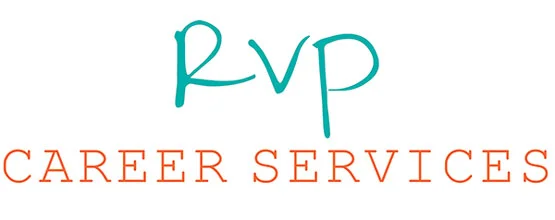The Top 7 Job Search Mistakes Jobseekers Are Making
/Starting a job search can be intimidating and overwhelming. But if you’re not sure if you’re even doing it right, you may feel like you’re spinning your wheels.
Fret no more! Here is a list of the top 7 mistakes jobseekers are making in their job search. Are you making any of them? Chances are, you’re making at least one or two — if not more! Go through this checklist and mark which mistakes you’re currently making — and then follow the suggestions to learn how to stop making that job search mistake!
Top 7 Job Search Mistakes
[ 1 ] Looking for a Job.
Wait, I shouldn’t look for a job? Don’t just look for a job — look for a career. A calling. What are you meant to do? How can you use your skills, education, and experience for maximum benefit? You may not see that position advertised in a job posting. That doesn’t mean it doesn’t exist. What kinds of problems could you solve for a company? What kind of company needs those problems solved? Investigate how you could solve that problem for that kind of company.
[ 2 ] Not Targeting Your Job Search.
What kinds of jobs are you interested in? What kind of company do you want to work for? If your answer is, “I don’t care, I just need a job,” your job search is less likely to be successful than if you spend some time thinking about where you want to work, and what you want to do (and how to get there!).
[ 3 ] Not Making It Easy for an Employer to See How You’d Fit In.
Generic résumés don’t attract employer attention. Instead, you need to show an employer how you can add value to their company. You need to customize your tool for the job. You wouldn’t use a hammer to tighten a screw, would you? You can’t use the same résumé to apply for vastly different jobs — for example, an elementary teaching position and a job as a sales assistant. Figure out what the key components of the job are, and then showcase how you can do those things in your résumé.
[ 4 ] Quitting Your Job Instead of Keeping It While You Find a Better One.
Maybe your Mom gave you this advice: “Don’t quit your job until you have a new one.” Mom was onto something. It’s controversial, but hiring managers and recruiters confirm that it’s easier to find a job if you’re currently employed. Jobseekers who have a job are more attractive candidates. Maybe it’s because unemployment can make you (seem) desperate. But study after study shows that currently employed candidates are hired more frequently than unemployed jobseekers … it’s especially tough if you have been out of work for quite some time.
[ 5 ] Confusing Activity With Action.
Are you confusing “busywork” with progress? Are you spending a lot of time researching jobs online and applying for lots of positions? While it’s recommended that you spend at least an hour a day on your job search if you are currently employed (and two to three times that if you are currently unemployed), make sure you are tracking how much time you are spending, and what you are spending it on. Spend your time on high value tasks — like identifying and researching companies you’d like to work for, and trying to connect directly with hiring managers and recruiters, and having coffee with someone who works for the company you’re applying at — and not just simply spending time in front of your computer.
[ 6 ] Paying Attention to Other People’s Opinions.
“You have to do this,” “Never do that,” “My cousin’s best friend got a job by standing out in front of the company wearing a sandwich board.” Everyone’s got an opinion about how to conduct a job search. Some of it is confusing, some of it is just plain wrong. Your friends and family can be wrong about how the job search works, and it might hurt your chances to get your dream job. Trust your résumé writer, and trust your instincts. Don’t believe everything you read online, and remember that one person’s opinion is just that — one person’s opinion.
[ 7 ] Doing the Same Thing Over and Over Again and Expecting Different Results.
“I applied for six jobs and haven’t heard anything back.” Well, then something’s not working. Either stop applying for advertised positions, start following up on the applications you’ve already put in, or figure out a different way to connect with your dream job. It’s been said that “the definition of insanity is doing the same thing over and over again and expecting different results.” If what you’re doing isn’t working, do something different!
Did you know I have 20 more job search mistakes?
Were any of these job search mistakes a surprise to you? Comment below!


